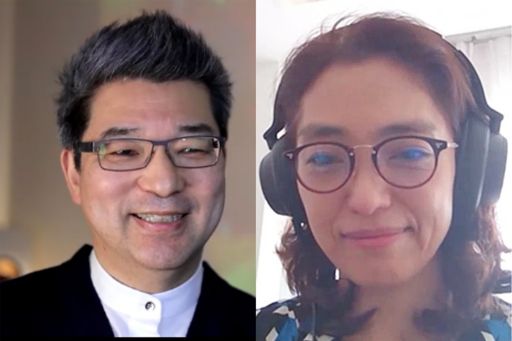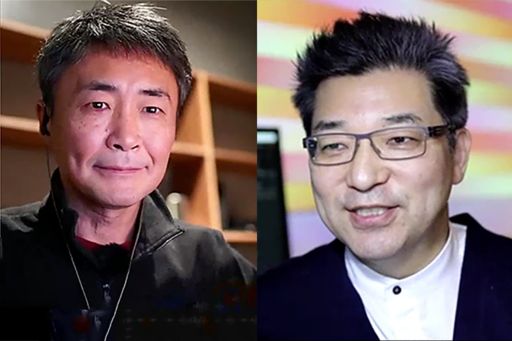It is often said that “startups on a scale similar to those overseas do not grow in Japan.” However, if we look to the past, many startups originating in Japan have scaled up to become major companies today, and we all know that they are recognized as global leaders in their respective industries.
So, what kind of support can stakeholders surrounding startups provide to foster competitive companies like in the past?
Masayuki Chatani and Tim Denley at KPMG Ignition Tokyo (KIT) and Toshiya Ito, Executive Board Member and Partner CPA at KPMG AZSA, discussed this topic.
Contents
- Both Startups and Long-established Companies Need Growth Support
- Tech-Smart Managers Need CFOs and CTOs with the Same Mindset
- Mobility of Professional Personnel Determines the Growth of Startups
- How Will AI Be Utilized in Next-generation Advisory Services?
- Examine as if Scanning the Entire Company with CT
- Concept of Society as a Whole Taking over Long-established Companies
Both Startups and Long-established Companies Need Growth Support
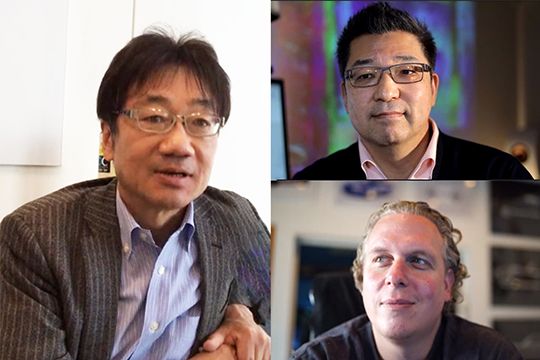
(Toshiya Ito, Executive Board Member & Partner CPA of KPMG AZSA (left), Masayuki Chatani, Representative Director & CEO of KPMG Ignition Tokyo and CDO of KPMG Japan (top right), Tim Denley, Board Member & Partner of KPMG Ignition Tokyo (lower right)) *Professional affiliation and official position in the article are at the time of publication.
Chatani: Ito-san, I understand that your division is providing growth support to startups. I assume that you have many contacts with companies that have just started up. What kind of support are you providing specifically?
Ito: The actual scope of business for supporting IPOs by startups is wide-ranging. For instance, we sometimes offer an advisory service that empathizes with the worries of startup owners, that is, “should we go public going forward? Is this our best strategy?” or we provide support not to go public but to expand overseas or introduce IT, depending on the growth stage of the company.
This may sound surprising but we are also consulted about successor and business issues by long-standing companies with a history of over 50 years.
Chatani: Your scope of business is wide-ranging. Business succession is indeed a theme that has been attracting attention for some time now.
Ito: KPMG, which operates globally, is conducting tax inspections for family businesses, mainly in the case of high-net-worth individuals. In Japan, cases where we are requested “to do something about the company” including successor issues and IPOs by long-standing companies are increasing rather than requests to provide tax-saving advice. Personally, I believe that we may be able to do something interesting if we can establish a network of superior companies throughout Japan through our family business support, which is unique to Japan.
Chatani: I think the business succession issue is directly linked to the future of the Japanese manufacturing industry. We often hear stories about long-standing manufacturing companies with superior technology having successor issues. If such technology cannot be passed on, there is a risk that the technology bases of Japanese manufacturing companies may weaken.
When startups emerge, collaboration with these companies with technical capabilities, I think, will become a key point in achieving differentiation from overseas companies. I feel that it is important to create value unique to Japan by combining the new and the old.![]()
Tech-Smart Managers Need CFOs and CTOs with the Same Mindset
Denley: In terms of growing companies, there has been a tendency for some time now for the managers of companies that are in the process of growth overseas to be technical experts. Is there such a tendency in Japan as well?
Ito: The range of tech-related companies has been expanding in recent years and the proportion of managers focusing on technology is increasing for sure.
However, when I talk to technical experts and people with this mindset, I hear the concern that “even if their technology is recognized, it is difficult to expand after that.” It is like “being able to cook delicious food” but facing the problem of “making the restaurant popular.”
Chatani: It’s true that many startup managers seem to have spun out from their research laboratories at famous universities where they were studying.
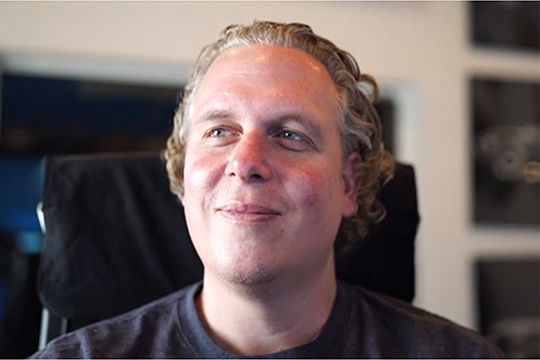
Regarding the story about “being able to cook delicious food but having difficulty making the restaurant popular,” that reminds me of Soichiro Honda, who teamed up with Takeo Fujisawa at Honda, and Akio Morita, who teamed up with Masaru Ibuka at Sony. I feel that it is very Japanese to achieve development with a combination of people on the technology side and those on the management side, like Honda and Morita, who were devoted to technology, and Fujisawa and Ibuka, who were responsible for business negotiations and marketing.
Ito: In this sense, cases where there is currently no one that can support people on the technology side seem to be increasing. There are people who “provided various kinds of support at venture capital firms” but their sensibility and views are different from those who were involved in the management of a company and worked together with the managers for 5-10 years until the company went public. This is the reason why CFOs change midway in many cases. There are also managers who consult us because they are seeking CFOs who have the same mindset as them.
Chatani: I also hear from people supporting startups that there is a “lack” of superior CTOs and CFOs and that this is becoming the new issue for startups.
Denley: Though startups tend to attract attention with their technology, I think it is the humanity aspect of “whether one can work together on the same boat” that must be focused on the most when creating a team to help grow the company. I think the same can be said for M&A and business transfer cases.
When we look at overseas startups, there are cases like Tesla’s Elon Musk and Apple’s Steve Jobs, who have both superior technical and management senses but these are quite rare. I think it is important to grow with a combination of good personnel, as in the case of Honda and Sony.
Mobility of Professional Personnel Determines the Growth of Startups
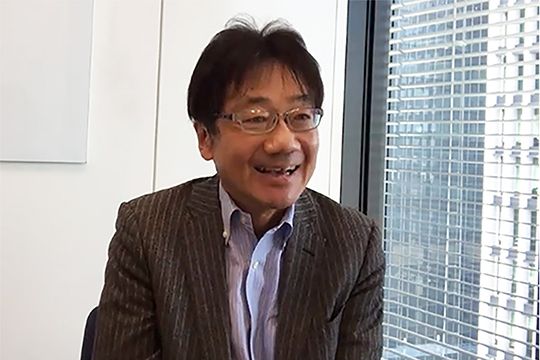
Chatani: I was in Silicon Valley for about five years and what was good about the place, I think, was the very high mobility of professional personnel such as legal and financial professionals who support startups.
In Japan, as transferring jobs involves the risk of lowering one’s salary, it may be that a cycle of “swiftly taking part in an interesting project and passing it on to the next generation after an IPO” has not been established yet. I hope that this will change soon.
As for VCs, there are few personnel who are versed in technology in Japan and what is different from overseas is that there are almost no cases of the founders of technology-related companies being involved in VCs themselves.
Ito: I have also been thinking about this “old and new theme” of “why large startups like those in the U.S. do not grow in Japan” for more than 10 years. I felt that the fundamental reasons why collaboration between major companies and startups does not go well are “the mindset of vertical organizations” and “adhering in some sense to one’s own scope and organization” in Japan. It even makes me feel that the consciousness of the clan (feudal domain) system in the Edo period still remains.
This mentality is the cause of the lowering of the mobility of the mind, and major companies that boast they are providing “support” for startups sometimes immediately withdraw from them if they do not grow in three years or so. Also, the startups themselves vaguely assume this and act accordingly. In such a situation, it is impossible to foster a trusting relationship between the two parties.
Though this may sound abstract, it may be because of this “clan mentality” that major companies place the highest priority on their own interests and cannot become serious about “growing with startups.” We need to think about how major companies and startups can reach out to each other a little more.
Denley: You’re right. We must look at the difference in the ecosystem between Japan and abroad. In the U.S., major companies focus on “one outstanding point of a startup even though it still has many deficiencies” and are willing to work together to foster this outstanding point. It seems that this ends up creating incentives for both parties. I think there are many approaches that are unique to Japan as well.
Ito: I believe that there are more areas auditing firms like us can support in such situations based on our credibility backed by our impartial and neutral standpoint.
Chatani: We also hope to support new challenges by creating a platform where startups and major companies as well as personnel such as CFOs can gather together and support transformation from “companies that can only survive in Japan” to “companies that take on the challenge to expand abroad.”
As many technology-related startups, in particular, involve members of the same age group or people from the same research lab, I feel that they potentially carry event risks and that the knowledge and experience of veteran personnel that are required in these areas will have significant value in the future.
Ito: Meanwhile, auditing firms like us also need to confront issues regarding the lack of personnel with sufficient expertise. A substantial amount of time is required to develop personnel who can equally audit startups and major companies. I feel that there is a limit in securing the desired quality while accepting all requests.
Chatani: I see. As technologies used by many recent startups are based on advanced expertise such as edge computing, blockchain and encryption, and their business models are different from those of conventional manufacturing businesses, I imagine that the knowledge required to audit them is changing significantly as well.
Ito: In addition to understanding the technical aspect, there is the issue of understanding the company itself. In fact, we can predict where auditing risks tend to occur to some extent if we have experience in auditing the business model of the company in the past.
However, in the case of startups, it is often the first time for both parties to become associated, and so it is extremely difficult to carry out an audit with professional skepticism while also trying to convince the management. Therefore, if we end up associating with them based on the stance that “we will conduct an audit just because we received a request,” we may end up losing the trust of the management and giving a sense of mistrust to the market.
This is why I think our main issue is to develop personnel. Otherwise, it will become difficult to even engage in discussions with the management sooner or later. I hope that KPMG Ignition Tokyo will help us to increase our literacy through technology learning.
How Will AI Be Utilized in Next-generation Advisory Services?
Chatani: We have been talking about views on personnel and mentality that are essential for supporting corporate growth but I believe that technology and solutions can also promote support. I am quite interested in the kind of situation where people at the work front think that “technology can be actually utilized.”
Ito: We receive many requests from clients to “look after them from start to finish with a one-stop service.” For these companies, we begin with the start-up and then set about two goals, based on which we envisage what must be done and whether there is a tool to support this.
Chatani: I see. KIT is currently planning to create a certain function with AI based on the idea that “when next-generation advisory services are defined, what kind of function will be necessary to make them possible?”
This is based on the view that if conventional advisory services involved “running together and encouraging customers,” then next-generation advisory services may entail “guiding customers ‘to go this way’ like the leading car in a marathon.”
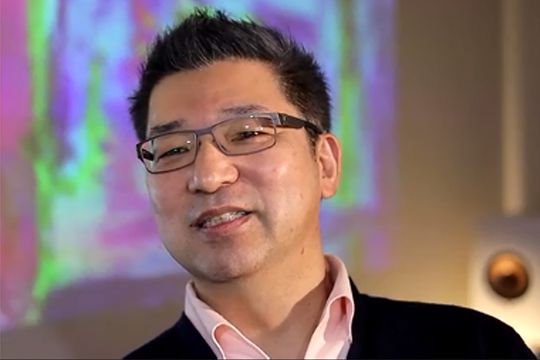
If the growth engine of a company is composed of strategy, tactics and operations, the strategy and purpose of the company can be identified by analyzing the statements of company managers and internal newsletters. Tactics can also be clarified by adding external environmental elements to this strategy. If we can understand this, we will be able to see a model of how to operate with what kind of system and organization. We are now discussing the possibility of identifying these with AI.
Ito: That sounds very interesting. We have been specializing in accounting audits until now but I think our role is similar to that of a doctor. When we think in this way, the fact that the world is changing rapidly means that “the body we are examining as a doctor is changing.” If so, we must get to know this new “body.” However, I’m afraid that we still do not have an accurate understanding and do not know where to start. In order to improve this, KIT’s sharing of knowledge on the positioning and potential of technology will be invaluable to us.
Examine as if Scanning the Entire Company with CT
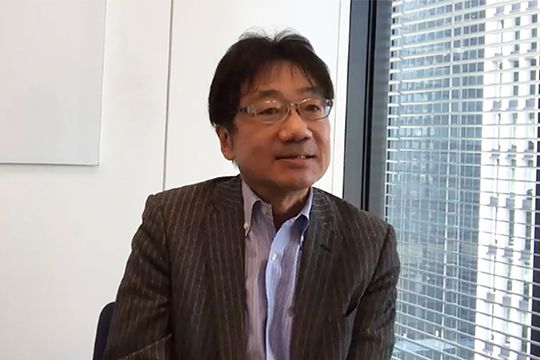
Chatani: We also often use the approach of likening a company to a human body and an auditing firm to a doctor. In order to fulfil this role, there may be something that can be done other than the scheme you just mentioned.
Ito: Companies often ask us “what is our worst part when you look at our entire company now?” but our current issue is that we can only point out problems intuitively. I often wish that we could show them objective data and declare that “the secret of companies that are growing well is this. They are different from your company in this way.”
Even if they say, “we are different from major companies” based on what they saw, it will make a great deal of sense if we can provide precise advice based on data and forecasts.
Chatani: KIT is now creating a solution called “Microservices,” which may enable what you just said. This solution digitalizes companies’ documents such as invoices with OCR so that they can be assessed together but we are hoping to create a scheme that will enable us to understand the “entire” company by piling “blocks” of data like Lego blocks with the evolution of capabilities in the future.
In order to operate this solution, we will be needing the knowledge of professionals for the engine part that involves assessment. This means that how we can digitalize the knowledge of professionals will be the key. We are thinking of starting by having it learn the documents and analysis results and then putting it to practical use. I am hoping that we will be able to work on this with you, Ito-san.
Concept of Society as a Whole Taking over Long-established Companies
Denley: Lastly, let’s talk about five to 30 years from now. I am focusing on the evolution of human interaction. For instance, the concept of communication is rapidly evolving, backed by digital and technological elements represented by social media apps such as “Clubhouse,” which has gained instant popularity.
Chatani: That’s true. The approach of utilizing a combination of avatars and voice technology to create a 24/7 presence in these social media is becoming a reality. I am exploring the possibility of creating an avatar of myself sometime soon so that I myself don’t have to go to the office.
Meanwhile, I am assuming that the succession of technology is becoming difficult in Japan now because technology and skills are extremely dependent on personal efforts, requiring “specific persons to be there” at the work front. And I think that we can find some ways to resolve this issue with technology.
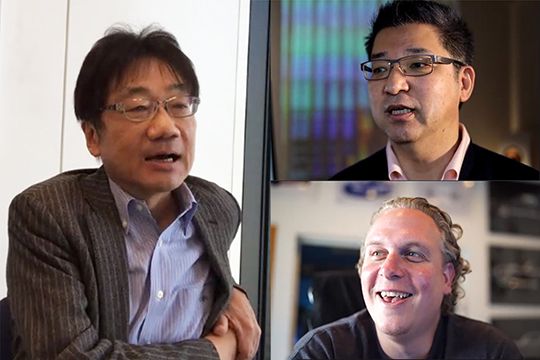
However, I think that personnel mobility at major companies must be enhanced to maintain and revitalize companies that have technology and skills. As there is a Japanese-style career of remaining in one company and experiencing work in various divisions, I imagine that a possible approach is for people that have studied management in a broad sense through experience in this way to take over companies that are struggling to find business successors and pass them on to the future.
Ito: I feel that many startups today are established based on their passion to “resolve social issues.” However, social issues change with the times and I believe most of the companies that are considered to be long-established now were also established because they wanted to resolve social issues and “do something useful for society” at the time. This is why an increasing number of long-established companies have recently been trying to provide society with the safety and security required by today’s lifestyles.
Both types of companies tend to be contrasted but I feel that their passions are the same. If so, don’t you think it is important for us to pave ways for them to join together in a new style so that one plus one will result in five or even six?
It is no longer a question of “which company will take over the business.” It is necessary for Japan as a whole to take over the outstanding core parts of long-established companies and combine them with new technologies. I even think that there is no need to stick to the “small framework” of a company. Now that COVID-19 is drastically changing society, I think this is a good opportunity for us to imagine such unconventional ideas.
As an auditing firm, we hope to create innovations that inspire the dreams of young people by trying not to be swayed by stereotypes, such as thinking about “how we can create companies that do not allow fraud” and not about “how we can promptly detect fraud.”
Follow us on KPMG Ignition Tokyo LinkedIn for the latest news.
Connect with us
- Find office locations kpmg.findOfficeLocations
- kpmg.emailUs
- Social media @ KPMG kpmg.socialMedia



